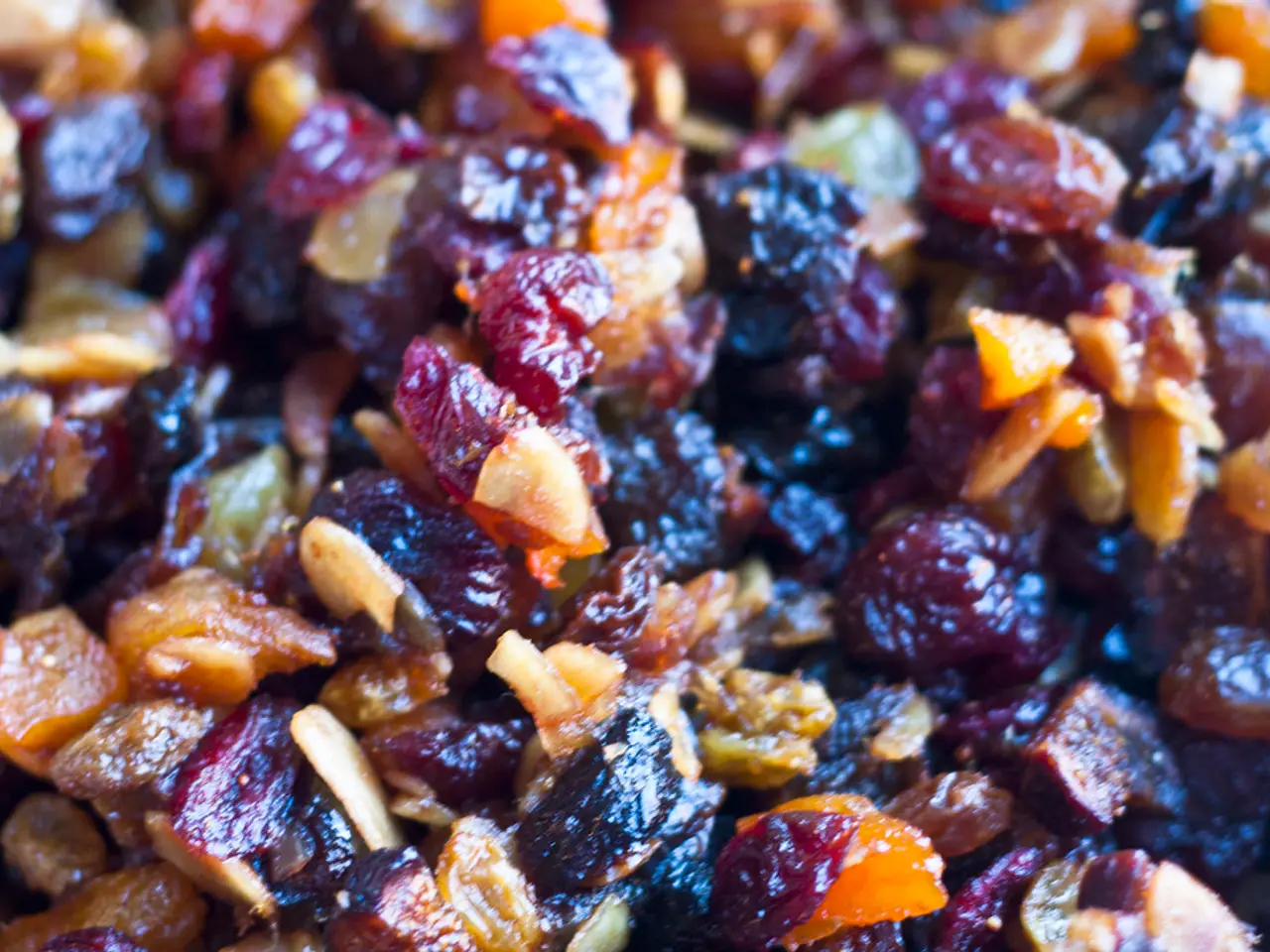Nutritious Food Choices: Legumes, Veggies, Proteins, and More
In the ever-evolving world of health and nutrition, maintaining a balanced diet is crucial. For those following a vegan lifestyle, ensuring a complete intake of essential amino acids can be a concern. However, a variety of plant-based foods offer healthful proteins that cater to this need.
Soy products, such as tofu, tempeh, and soybeans, are one of the few plant-based proteins that naturally contain all the essential amino acids in adequate amounts. Quinoa and amaranth, whole grains known as complete plant proteins, also make the list. Hemp seeds, valued for their recovery and nutrition properties, provide all nine essential amino acids as well [1][5].
Complementary proteins, like beans, lentils, nuts, and grains, typically lack one or more essential amino acids when consumed alone. By combining different plant protein sources throughout the day, such as pairing legumes with grains or nuts/seeds, a vegan diet can provide an optimal amino acid profile equivalent to a complete protein [1][2][3][5].
Blueberries, a popular fruit, are not only a delightful addition to any meal but also offer numerous health benefits. They might help protect against cognitive decline, reduce the risk of Alzheimer's disease, and potentially prevent cardiovascular disease [6].
Brazil nuts, rich in protein, carbohydrates, vitamin B-1, vitamin E, magnesium, zinc, and selenium, are another nutritious choice. Selenium, a vital mineral for maintaining health and acting as a great antioxidant for the human body, is particularly abundant in Brazil nuts [7].
Avocados, high in monounsaturated fats, vitamins B, vitamin K, vitamin E, and fiber, are a great source of nutrients. Some studies suggest they may have anticancer properties and increase levels of high-density lipoprotein, or "good," cholesterol [8].
Leafy greens, such as kale, provide a significant amount of vitamins C and K and can help reduce cardiovascular risk factors when consumed for six weeks [9]. Lentils, rich in fiber, magnesium, and potassium, can be made into a quick, healthful snack through sprouting [10].
Oatmeal, a staple breakfast food, is rich in soluble fiber, complex carbohydrates, and water-soluble fiber, which slow down digestion and help stabilize levels of blood glucose. It is also a good source of folate and potassium [11].
Omega-3 fatty acids, found in oily fish like salmon, trout, mackerel, herring, sardines, and anchovies, may provide benefits for the heart and nervous system [12]. However, for those following a vegan diet, plant-based sources of omega-3 fatty acids include chia seeds, flaxseeds, and walnuts.
Apples, an excellent source of antioxidants, combat free radicals. Some studies suggest that an antioxidant in apples might extend a person's life span and reduce the risk of chronic disease [13].
Sweet potatoes, ranked number one for their vitamin A, vitamin C, iron, calcium, protein, and complex carbohydrate content, make a nutritious addition to any meal [14].
Eggs, a common source of protein, contain vitamins B-2 and B-12, leucine, and choline. While they are a healthful food, eating up to seven eggs per week does not increase the risk of heart disease for most people [15].
In conclusion, a balanced vegan diet can be achieved by incorporating direct complete proteins like soy products, quinoa, amaranth, and hemp seeds, and combining complementary proteins such as legumes, grains, nuts, and seeds throughout the day. The variety of nutrient-dense plant-based foods available ensures a well-rounded diet, offering numerous health benefits for those following a vegan lifestyle.
- Incorporating direct complete proteins like soy products, quinoa, amaranth, and hemp seeds into a vegan diet can help achieve a balanced nutritional profile.
- Such food choices can cater to the concern of essential amino acid intake for those following a vegan lifestyle.
- Blueberries, a delightful addition to meals, offer potential benefits against cognitive decline, Alzheimer's disease, and cardiovascular disease.
- Brazil nuts, rich in selenium and other nutrients, are a nutritious choice for vegans.
- Avocados, high in monounsaturated fats, fibers, and vitamins, may have anticancer properties and boost levels of 'good' cholesterol.
- Leafy greens, such as kale, can help reduce cardiovascular risk factors when consumed for six weeks.
- Lentils, when sprouted, can make a quick, healthful snack and provide fiber, magnesium, and potassium.
- Oatmeal, rich in soluble fiber, can help stabilize blood glucose levels and is a good source of folate and potassium.
- Omega-3 fatty acids, while found in fish, can also be obtained from plant-based sources like chia seeds, flaxseeds, and walnuts.
- Apples, a good source of antioxidants, combat free radicals and may extend a person's life span and reduce the risk of chronic disease.
- Sweet potatoes, rich in essential nutrients like vitamin A and vitamin C, make a nutritious addition to any meal.
- Eggs, a healthful food for most people, contain vitamins B-2 and B-12, leucine, and choline.
- However, consuming up to seven eggs per week does not increase the risk of heart disease for most people.
- A well-rounded vegan diet should also consider other nutrition aspects such as multiple sclerosis, bipolar, diabetes, colitis, arthritis (multiple and psoriatic), macular degeneration, ulcerative colitis, hepatitis, cancer (predictive), age-related health concerns, and overall health-and-wellness, fitness-and-exercise, nutrition, cooking, and lifestyle.
- Science plays a crucial role in understanding the connection between food, drink, and health, enabling us to make informed choices for our diet and lifestyle.




